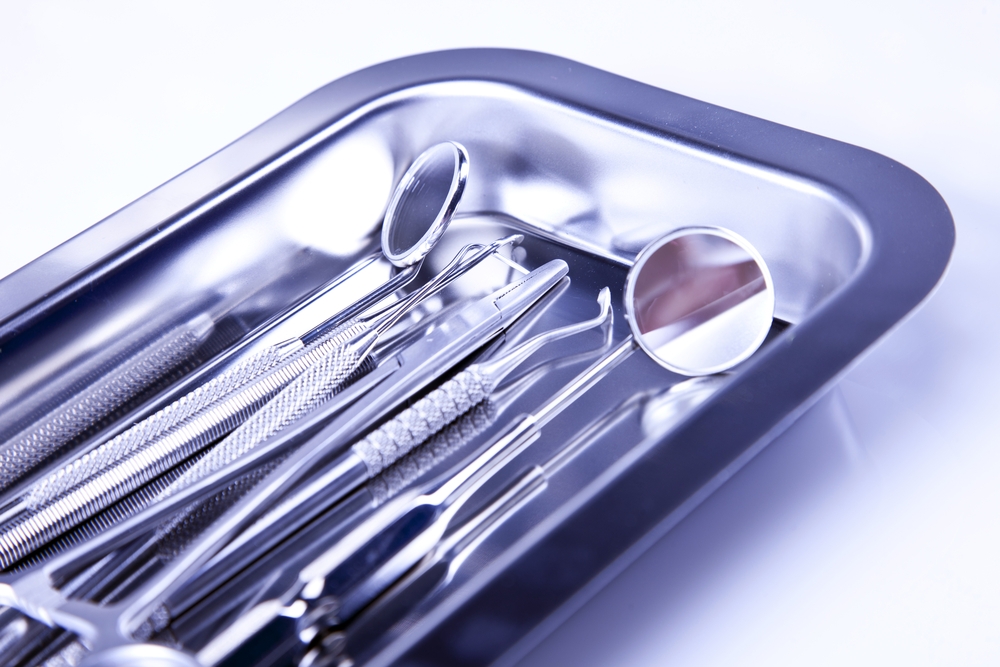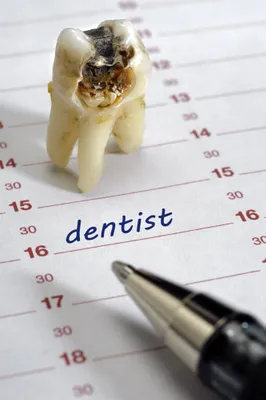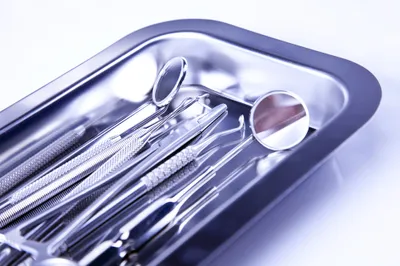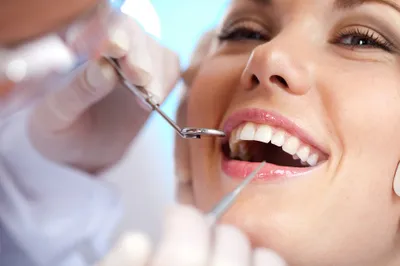When your dentist asks you to “open up and say ahhh,” he or she sees much more than a lot of plaque, a chipped tooth, and a few long-ignored cavities. While the eyes are often referred to as the “windows to the soul,” the mouth could very well be dubbed “the window to your overall health.” In truth, your dentist can pinpoint bad habits—from alcoholism to soda addiction, and diseases—from diabetes to oral cancer—simply by examining your mouth…
1. Alcoholism
If you have an addiction to alcohol, chances are opening your mouth and breathing into your dentists face will be enough convince them that you have a drinking problem. According to the National Institute on Alcohol Abuse and Alcoholism (NIAAA), there are several ways that a dentist can pinpoint alcoholic patients—starting with the smell of alcohol on the breath and the patient’s telltale ruddy complexion.
In addition, research shows that alcoholics are typically prone to cavities. This is due to excessive dry mouth (from drinking alcohol) as well as acid neutralization in the mouth. According to the NIAAA, those with alcohol problems also tend to neglect proper oral hygiene and don’t maintain a balanced diet.
2. You Drink a Lot of Soda
If you slug a lot of sugary sodas or energy drinks (i.e., Gatorade) throughout the day, chances are that your dentist already knows. According to Atlanta-based dentist, Dr. Hugh Flax, chipped teeth can be an underlying sign of weak, soft teeth caused by drinking sugary beverages.
If you’ve swilled a lot of energy drinks and sodas over time, gradually washing your teeth and gums in refined sugars and acids will weaken and damage teeth, making them prone to chips. Dr. Flax points out that energy drinks tend to be even more acidic than soda, and may wear away at hard enamel more quickly.
3. You Have an Eating Disorder
If your dentists brings up bulimia at your annual check up, he may have picked up on some subtle signs of the disorder by peering into your mouth. According to Canada’s National Eating Disorder Information Centre (NEDIC), dentists are often the first medical professional to notice the telltale signs of bulimia in patients that roughly 89-percent of bulimics suffer.
This is due to the fact that bulimics develop a distinct pattern of acid erosion on the teeth near the front of the mouth. tooth wear that your dentist can easily identify. However, medical professionals note that patients with this pattern of wear can also suffer from acid reflux or take antidepressants, which are also linked to a similar pattern of acid erosion.
4. Diagnosed Diabetes
Patients with uncontrolled diabetes are susceptible to dental problems—particularly swelling, bleeding, sensitivity, and infections of the gums, according to research from Web MD. Not only can unmanaged blood sugar levels cause decreased blood supply to the gums, dry mouth (and less saliva production) can exacerbate bacteria and plaque buildup, resulting in gum disease.
A dentist may be the first medical professional to ask you to have your blood sugar levels tested due to signs of gum damage in your mouth—including excessive gum bleeding, swelling, and enhanced gum decay.
5. Spotting Oral Cancer
According to the latest statistics from the Canadian Cancer Society, 4,100 new cases of oral cancer crop up each and every year in Canada. And believe it or not, dentists play an integral role in early diagnosis of the disease by being the first medical profession to notice subtle changes in the mouth that your regular general practitioner might not see during an annual check up.
For instance, a patient may complain to their dentist of unexplained bleeding or a strange texture in the mouth. Upon examination, a dentist can identify the telltale signs of oral cancer—including swelling, thickening, lumps, eroded areas, and speckled white and/or red patches along the gums or inside the mouth—that demand follow up with a tissue biopsy.
6. Presence of a Sinus Infection
Did you know that patients often mistake a sinus infection for a toothache or the need of a root canal? According to the Mayo Clinic this isn’t uncommon for patients to mistake the presence of sinusitis with a tooth issue since the roots of the top teeth are situated in the same general domain as the base of the sinuses.
Sinus infections can cause intense pressure in the same area where teeth generally erode and tooth pain occurs. Research from Web MD suggests patients who believe they have a toothache to bend over and touch their toes. Pain that gets worse with shifts in movement (i.e., bending over or lying down) likely suffer from sinus pain and need to see a doctor.
7. Pregnancy
According to research from Web MD, roughly 40-percent of women will develop gingivitis while pregnancy. The influx of progesterone hormone during pregnancy is to blame for heightened risk of periodontitis (gum disease) and gingivitis (inflammation of the gums). This is why this condition gets it’s own designation as “pregnancy gingivitis.”.
Web MD suggests that over-production of progesterone triggers the growth of gingivitis-causing bacteria to grow, which increases plaque-causing bacteria, erodes and inflames gum tissue, and exacerbates the risk of gum disease—typically during the later stages of pregnancy.










